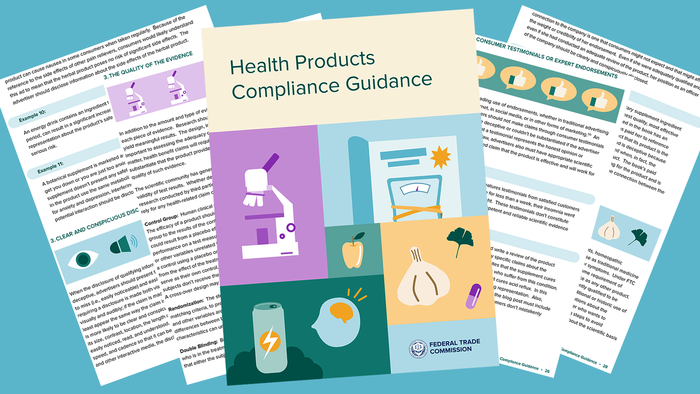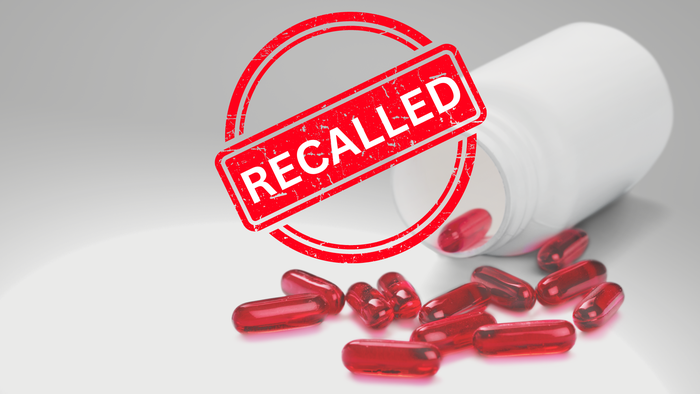DSHEA: 10 things emerging supplement brands should know
Like most laws, the Dietary Supplement Health and Education Act can be confusing and complicated. Read this guide to get started.
December 13, 2023

It’s not uncommon to read or hear that dietary supplements are either loosely regulated or not regulated at all. Sometimes the industry is even referred to as the lawless Wild West.
“Reading the mainstream press, it’s easy to get the impression that supplements aren’t regulated,” says Ivan Wasserman, managing partner at Amin Talati Wasserman and a leading attorney in the dietary supplement and wellness products space. “But the fact is, while supplements are regulated very differently from pharmaceuticals, they are subject to thorough and complicated regulations.”
Nearly 30 years ago, the Dietary Supplement Health and Education Act (DSHEA) of 1994 was signed into federal law. An amendment to the Food, Drug and Cosmetic Act, this landmark legislation instituted a unique regulatory framework for supplements to ensure their identity, quality, strength, composition and safety. DSHEA authorized the Food and Drug Administration to establish and enforce regulations around everything from supplement manufacturing to labeling to health claims. The law also empowered the Federal Trade Commission to oversee supplement claims in advertising, ensuring that they are factual, not misleading and substantiated by evidence.
So yes, supplements are indeed regulated.
“It’s not as easy as throwing a bunch of ingredients into a product, slapping on a label and promoting it on Facebook,” Wasserman adds. “There are rules to follow, and if you don’t, you could land in hot water from FDA, FTC or class-action attorneys.”

Ivan Wasserman, managing partner at Amin Talati Wasserman, left, and Megan Olsen, senior vice president and general counsel at the Council for Responsible Nutrition, speak about DSHEA.
According to Megan Olsen, senior vice president and general counsel at the Council for Responsible Nutrition, DSHEA covers nearly all aspects of making and selling a supplement, from its inception as an ingredient through its distribution and end use by consumers. It dictates which ingredients can be used, how they can be used, which formats they can take and much more.
DSHEA also lays out clear rules for manufacturing, mandating strict adherence to the current good manufacturing practices (GMPs) for dietary supplements.
“This includes understanding that, when the ingredient comes into your manufacturing facility, that it is what it says it is and remains free of harmful contaminants throughout the process,” Olsen says. This means that when the finished product leaves a facility, companies must once again make sure that it is legit, labeled correctly, safe and high quality.
“DHSEA also governs the types of claims you can make and what information you must give to consumers, such as what’s in the product, how much and how consumers should use it,” Olsen says. “And on the post-market side, supplement companies have to monitor adverse events and report any serious medical situations to FDA.”
Overall, DSHEA is multifaceted and nuanced, with a ton of information for new supplement brands to learn. Here are 10 must-knows.

The FTC's Health Products Compliance Guidance provides resources to help brands comply with the parts of DSHEA that the Federal Trade Commission enforces.
1. Regulators’ websites are your friends
For emerging brands unfamiliar with DSHEA, the FDA’s website is a great place to start. It outlines in plain English how the regulations work and offers several guidance documents to help companies comply with the various aspects of DSHEA.
Similarly, the FTC’s website, starting with Health Products Compliance Guidance, provides resources to facilitate compliance with the parts of DSHEA that the FTC enforces.
Both regulators update their sites frequently to share any clarifications, changes or new guidances, so it’s smart to visit both often. For instance, in December 2022, FTC issued its Health Claims Compliance Guidance, the agency's first significant revision of its rules for dietary supplement advertising since 1998.
2. Certain ingredients are allowed, many others are not
Contrary to what industry skeptics may claim, brands can’t throw just any ingredient into a supplement. DSHEA outlines two classes of permissible ingredients: dietary ingredients and “other” ingredients, all of which must be disclosed on the product label.
Dietary ingredients include vitamins, minerals, herbs, botanicals, amino acids and other dietary substances used to supplement the diet, or a concentrate, metabolite, constituent, extract or combination of any of those. “Other” ingredients include fillers, binders, excipients, preservatives, sweeteners, flavorings, etc.
If a company develops or wants to use a new dietary ingredient—one that wasn’t used in supplements before DSHEA’s passage in 1994—the company must issue what’s called a new dietary ingredient notification before going to market.
FDA also maintains an extensive directory of ingredients prohibited under DSHEA. The list includes any ingredient ever used first as a drug—something that has tripped up many supplement companies.
“Determining what is a supplement ingredient and if it’s excluded is really important,” Olsen says. “Unfortunately, we’ve seen cases recently where innovative companies have put forward a new dietary ingredient and gone through the notification process with FDA. Then after committing a lot of time and resources to the safety review and other aspects of bringing the supplement to market, they found out that it was precluded because of the drug preclusion.”

Per the DSHEA, a supplement brand is ultimately responsibility for meeting manufacturing standards. Credit: Alamy
3. Brands can’t contract out their DSHEA obligations
The vast majority of supplement brands don’t manufacture their own products, instead relying on contract manufacturers. This is perfectly fine—but it doesn’t let brands off the hook.
“Emerging brands often think, ‘Well, under DSHEA, supplements must be made in accordance with GMPs, but I’m not making them, so this is the contract manufacturer’s problem,’” Wasserman says.
Not so fast. Per DSHEA, the brand owner bears the ultimate responsibility for a supplement’s manufacture—even if the brand doesn’t do the actual manufacturing. Therefore, if ever a contract manufacturer makes a mistake, which could make a product unsafe, poor quality or misaligned with the label in any way, FDA will blame the brand, not the contract manufacturer.
“FDA expects the company whose name is on the bottle to have standard operating procedures and policies in place to ensure that products are safe and made according to GMPs,” Wasserman says. “You must take the right steps to ensure that your manufacturers are doing things correctly. A lot of this can be handled through a quality agreement between the company and the manufacturer that spells out who is responsible for what.”
4. Disease claims are off-limits—and disease is defined broadly
DSHEA has lots of rules about product claims, but this one is critical: Brands are not allowed to make disease claims, meaning that a supplement cannot purport to prevent, treat or cure a disease. It is against the rules to make either an expressed disease claim—one that is outright or direct, such as “X supplement treats Y disease”—or an implied disease claim, aka one that is indirect, subtle or suggestive.
This restriction applies to any disease, from the common cold to an infection of any kind to chronic conditions such as heart disease, diabetes or cancer. Plus, FDA defines disease a lot more liberally than the average person would. “Just because you don’t think it’s a disease doesn’t mean FDA doesn’t think it’s a disease,” says Wasserman.
Take pain, for example. Most people wouldn’t consider generalized pain a disease, but FDA often does. Therefore, claiming that a supplement can lessen pain could cross into disease-claim territory.
“Cholesterol, blood pressure, blood sugar, inflammation—none of those are diseases either,” Wasserman adds. “But if you claim to reduce any of them, FDA considers that an implied disease claim. Even hangovers, oddly, are diseases according to FDA, so you can’t claim that your supplement can prevent a hangover.”
5. Claims responsibility goes way beyond product labels
“You can’t claim to treat, cure or prevent a disease anywhere,” Wasserman says. “Many companies think their product labels are the only place they have to be careful about this rule. But you also have to be careful in marketing materials, on your website, on social media and even in physician- or business-directed communications. This is something that emerging brands often struggle with.”
For instance, let’s say a brand posts a blog discussing the benefits of a particular nutrient.
“You might think you’re just talking about that ingredient, not your products,” Wasserman says. “However, if your products contain that nutrient, then FDA can consider any claim made about that nutrient within the blog to be a claim about your products. And that claim might even be true! Even so, in FDA’s eyes, it causes the product to be a drug, not a supplement.”
6. DSHEA allows three types of claims
OK, so what can a brand claim about its supplement without catching heat from FDA or FTC?
DSHEA allows structure/function claims, which, according to FDA, “may describe the role of a nutrient or dietary ingredient intended to affect the normal structure or function of the human body. “Calcium builds strong bones” is a good example.
A structure/function claim can also, per FDA, “characterize the means by which a nutrient or dietary ingredient acts to maintain such structure or function.” Examples of this include “fiber promotes digestive regularity” or “collagen supports joint health.”
Additionally, DSHEA permits general well-being claims, which speak to the benefits of consuming a nutrient or dietary ingredient, as well as certain nutrient deficiency–related claims.
FDA does not preapprove these three types of claims, although brands must notify the agency of a claim within 30 days of putting the product on the market. Still, product labels must include a disclaimer that the agency hasn’t reviewed their claims and that the supplement is not intended to diagnose, treat, cure or prevent any disease.
7. Claims must be substantiated—and the brand must hold the proof
Brands also must have substantiation—aka hard proof—that its claims are truthful and not misleading. This means having “competent, reliable scientific evidence” to back up each claim and being ready to share it with FDA and potentially FTC.
There is a lot of flexibility in the type and level of scientific evidence needed to back up a supplement claim. DSHEA left this wiggle room purposefully because supplements vary so widely. It allows companies to use the testing methods, study designs and other substantiation tools that best fit an individual ingredient or finished supplement. However, the flexibility can create confusion among brands.
“I’ve seen a lot of companies misunderstand the substantiation process,” Olsen says. “They’d have scientific studies—in many cases, good scientific studies—but they didn’t understand the nuances of how those studies needed to be a good fit with their product. It must be the same dose as a used in the study, for example, and the same formulation.”
Another common mistake among supplement brands is “just taking whatever an ingredient supplier claims about an ingredient and running with it,” Wasserman says. “You should do your homework to confirm that those claims are substantiated by the science and allowed under DSHEA.”

DSHEA is a criminal statue that allows the FDA to issue warning letters or fines, and even require a brand to recall a product that violates the law. Credit: Canva
8. Violating DSHEA can have hefty consequences
As Olsen points out, DSHEA is a criminal statute, so it can carry serious penalties, although FDA rarely levies big fines as a first course of action. Instead, the agency will send a warning letter for claims-based violations or labeling errors, or issue a 483 notice for manufacturing-related issues.
Typically, if a brand corrects the problem, FDA won’t issue any fines or further actions, says Wasserman. But that doesn’t mean the brand won’t incur more consequences.
For one thing, fixing a mistake can be expensive, time consuming and disruptive to business. “If a product has gone through distribution and been sold to a consumer, any mistake [related to] safety will be the most detrimental to a company,” Olsen says. “A violation unrelated to safety, such as a labeling error, may be a bit easier to fix, because you can just reprint labels.”
Claims-based violations can be especially costly. For example, Olsen says if a product’s dosage is found to be lower than the dosage used in the study meant to back up the claim, then a brand might have to reformulate the product or pull its claims.
Also consider that FDA warning letters and 483 notices are public documents. “When customers search for your brand online, the first thing they’ll see, at least for a while, will be that warning letter, which certainly isn’t good for sales,” Wasserman says.
On top of that, class-action lawyers actively monitor FDA warning letters for litigation opportunities. “More often than not, a lawyer will send a demand letter or lawsuit purporting to represent consumers who bought your improperly labeled products and therefore deserve their money back,” Wasserman says. “This creates a big problem for business.”
9. DSHEA isn’t the only law governing supplements
“There are other laws besides DSHEA that supplement brands must follow,” Wasserman says. He points out that the FTC has specific rules about claims such as “Made in the USA” or sustainability. “There are also state-specific laws, most notably California’s Proposition 65.” Violations of Prop 65, which requires companies to display a warning label on any product containing certain chemicals, “have tripped up many supplement brands,” Wasserman notes.
“We’ve also seen state attorneys general, who also have jurisdiction, step in to bring actions and enforce their state laws against supplement companies,” Olsen says. “There is a lot of focus on FDA, but don’t forget that other agencies have jurisdiction and will also scrutinize your products.”
10. It's smart engage an attorney or consultant—and early
DSHEA and other laws can be tricky to interpret correctly, but supplement brands need not navigate them alone.
“There are a lot of well-qualified consultants and attorneys in this industry who can guide you through these complicated rules,” Wasserman says. “A good consultant or lawyer should also have the resources to know what claims FDA has objected to in the past.”
When should brands recruit a professional��’s help? The earlier in the process, the better.
“There are so many aspects of DSHEA, so it’s very important to engage with experts in this industry from the start,” Olsen says. “Any one thing you get wrong can have a domino effect. Having to fix a mistake often requires a lot of time and money—and that’s the best-case scenario. Worst case, you could end up with a product recall because of a safety issue, which could be very detrimental to an emerging brand moving forward.”
Engaging a consultant or attorney at the outset isn’t cheap. “But it’s far less expensive than paying a lawyer to get you out of trouble once you’re in it,” Wasserman says.
Olsen also recommends joining an industry trade association such as CRN, which provides educational materials, networking opportunities and easy access to staff with years of industry experience.
“For new companies, [DSHEA] is not always easy to navigate,” Olsen says. “Working with trusted trade associations, law firms and consultants is really helpful and, I think, crucial to getting it correct.”
This article originally appeared on New Hope Network, a Natural Products Insider sister website. Visit the site for more trends and insights into the natural and organic products industry.

About the Author(s)
You May Also Like




.png?width=800&auto=webp&quality=80&disable=upscale)